EXCLUSIVE: Israel’s Economy Faces War-Driven Strains, Yet Tech Offer a Path Forward

Since the October 7 attacks, Israel’s economy has faced a powerful shock on multiple fronts—military spending, disrupted trade, labor shortages, and plunging tourism—all of which have combined to slow growth, inflate public debt, and strain public finances.
Mobilization of roughly 300,000 reservists and heavy weapons use have driven unprecedented military expenditures. The Israeli military’s daily cost—including reservist pay, equipment, and ammunition—has been estimated at about ₪1 billion (roughly $270 million) per day. By May 2024, the Bank of Israel and Finance Ministry put total war-related outlays at some ₪250 billion, rising to around ₪300 billion once the northern front expanded. Over 2023–25, those costs may total about $55.6 billion—equivalent to 10% of GDP—while indirect effects such as lower investment and labor disruptions could cost Israel as much as $400 billion over the next decade.
To finance urgent war and reconstruction expenses, the government boosted its 2023 budget by roughly ₪30 billion and expanded the 2024 budget to about ₪585 billion, driving the deficit toward an estimated 6.6% of GDP. Public debt climbed from ₪1.04 trillion at end-2022 to ₪1.25 trillion by mid-2024, and credit-rating firms have placed Israel’s A+ grading under review—Fitch even downgraded its rating in August 2024.
The mass call-up of reservists and the suspension of roughly 100,000 Palestinian work permits triggered a sharp output loss. In Q4 2023, the economy contracted nearly 20% year-on-year in affected sectors, and private consumption fell by 27%, while business investment plunged by 67.8%. Despite record government spending—which rose 88.1%—growth in 2023 slowed to 2% (from 6.5% the prior year), with projections for 2024 trimmed to around 0.7% and a gradual rebound to 2.7% by 2025.

International arrivals collapsed as airlines suspended flights to Israel. January 2024 saw only 58,000 tourists—down from 257,400 the year before, an 80% drop—and single-day visits plunged 96%. Tourism-dependent towns such as Eilat laid off workers and required government aid (₪50 million) to sustain local businesses.
Houthi attacks on Red Sea shipping in solidarity with Gaza have forced over 100 container ships—each adding about 6,000 nautical miles and three weeks to voyages—to reroute around Africa by late 2023. Insurance premiums on vessels calling Israeli ports have surged as much as 250%, and Eilat port saw activity fall 85% before declaring bankruptcy in mid-2024. In May 2025, the Houthis even announced a “maritime blockade” of Haifa port, warning ships bound for Israel’s second-largest port that they were potential targets.
A US–Houthi ceasefire, brokered by Oman, that went into effect May 6, 2025, halted attacks on American vessels but did not lift Houthi restrictions on Israeli shipping—which continue to weigh on Israel’s supply chains and logistics costs.
With key foreign and Palestinian workers barred entry, Israel recruited labor from India and Sri Lanka to fill gaps, yet construction and manufacturing have remained constrained. To ease business distress, the government set up a ₪10 billion loan fund and direct grants for firms facing steep turnover losses, plus compensation schemes for employees impacted by attacks.
To gain a better understanding of the current state of the Israeli economy and the effect of the wars Israel wages in the region, Wyoming Star spoke with Paul Rivlin, an economist and Senior Research Fellow at the Moshe Dayan Center for Middle Eastern and African Studies at Tel Aviv University.
Wyoming Star: I would like you to give us a short breakdown of the state of the Israeli economy before October 7th and now, after almost two years.
Paul Rivlin: The Israeli economy was doing very well in many respects until the last elections in 2022. And following those elections, a new government was formed, and within a few months, it announced huge legal reforms. And those proposals, which, amongst many other things, would have reduced the power of the courts to provide a legal framework for government action, reduced the power of the state prosecution service to deal with anything illegal by government officials, and much else, caused huge demonstrations by Israeli standards. There were hundreds of thousands of people in the streets for months and months and months until the war broke out in October 2023. So you had demonstrations, a country in a state of internal political crisis for more than half a year, and this was the first thing that somewhat undermined the economy.
In the Israeli economy, the leading sector is high tech, and that’s a very international sector. It’s transformed the economy because it’s brought a lot of investment in, and it exports huge amounts of high-tech products, which are increasingly services.
They’re not things you fly out on planes or on boats, like a country supplying wood or timber or coal. This can all be done online—internet security and much else. And then there are the military exports, which are mixed between much more in the way of goods, things that you can see. These kinds of sectors are very sensitive to having an open international environment and a feeling of security. If you’re a country relying on banking, you’d have the same problems if there was instability. But this was Israel’s strong side and you could say also posed challenges. You can’t, as far as I can understand, develop this kind of sector successfully in a country that is not democratic; it doesn’t happen. I know the Chinese are doing all sorts of things, but I’m not sure if it’s exactly what we’ve done in some Western countries. I’m not sure that their products or their services are as good. But I don’t want to be imperialistic in my approach.
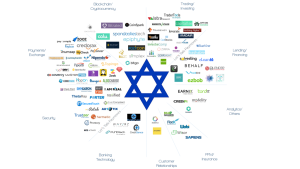
Wyoming Star: And their development has been linked deeply with the state.
Paul Rivlin: I was there a couple of years ago at a conference, and business people were saying, “You know, the state has gone crazy. They’ve allowed us to develop, but now they’re clamping down and making it much harder.” Well, that didn’t happen here, and the philosophy behind the government was very similar to things that you see in the United States recently. That old idea of getting the government out of people’s affairs—and you could say that that had worked well when the state was dominant in the 80s—and by freeing up the economy, it was going to be stronger and stronger. But there are limits. There have to be legal frameworks; otherwise, uncertainty and insecurity come. So you had those nine months of almost revolution-counterrevolution, terms I borrow from other countries, but also you have the war, which, as happened here in the Yom Kippur War, the 1973 war, came as a total surprise. But it was worse for two reasons: firstly, it took place in Israel, and that was a tremendous shock, and it began with this vast massacre of civilians and the taking of hostages. That did not take place in the Yom Kippur War, where many soldiers died—bigger numbers than this—but in some ways, if we could leave the numbers out, this was worse. Because the whole area of Israel, not a controversial area, inside the old borders, was taken over for hours, days, by terrorists who are not supposed to be comparable with the Israeli army, which is supposed to be so strong, but something was badly wrong. So this war has been going on ever since. It’s put tremendous stresses and strains on government budgets, so there have been increases in taxation, and there has been, as in other countries, a tremendous increase in prices. And as usual, the people at the bottom suffer the most. But with all that, I would think, I don’t have the figures, that the government finances, the deficit that it faces is big, and it needs to borrow money and raise taxes. And that’s not easy.
But the balance of payments is OK. It hasn’t collapsed. The amount of foreign investment coming in was declining somewhat before this because there was an international recession—that’s too strong a word—a kind of calming of the growth in the international high-tech sector.
Wyoming Star: Especially after COVID-19, I would think.
Paul Rivlin: That was probably the main thing, but I suspect there were other things. These sectors, which, pardon the expression, zoom ahead, have their moments like everything else. So we noticed that it wasn’t just here that less money was coming in but that this was part of an international phenomenon that goes back some years, and therefore we didn’t need to worry that we’re getting it all wrong. So the foreign investment has been considered to be at lower levels, but the balance of payments as a whole has been strong because the exports are strong, and the exports are dominated, the largest section, not half, but still a large thing, which comes from all these high-tech sectors—medical, biological, and other things.
And the other sector that has grown, it’s worrying in a way, is military exports. And that is not because of the war here. That is because of the war in Ukraine.

It’s not because we’re selling things to Ukraine. I very much doubt that we are, although we would like to, perhaps for moral reasons, and also it’s another market, but I suspect because of Russian involvement in the Middle East and general fears of coming to collide with them as well as everything else we’ve got here. They don’t want to do that. But other countries have had less hesitation until very recently.
Wyoming Star: So they are reselling Israeli weapons?
Paul Rivlin: They are selling Israeli weapons into the European Union, and there are other countries as well, India and others. They’re on the list of OK states for Israeli technology to be sold to, and there are a whole load of countries where they can’t or we won’t.
So the economy has done okay in that respect, but living standards have been frozen for quite some time, wages in the public sector have been cut, prices have gone up, and there is a tremendous, underneath it all, the most important thing in some respects about an economy is the level of certainty. And that is very weak. And I do see from afar, and I’m not being political, elements of this in the United States as well.
There is anxiety, whatever side you’re on. There’s just anxiety that things are not quite working as they should at the higher level. Here the political situation is very serious, and it affects the economy. But it hasn’t collapsed. And what is very important for managing everything is that the balance of payments remains strong, because Israel relies on buying things abroad. And the one problem is whether people abroad decide not to sell to us, and that is happening all over the place, but it hasn’t gotten so far that we can’t survive. And the other thing is the financing of all this has got to be secure, and it is.
Wyoming Star: What other sectors are most affected aside from the tech sphere inside the Israeli domestic economy?
Paul Rivlin: Well, it’s not such an important side, but the tourist sector has been basically closed down. I think there are a few tourists here, but I have a number of friends who are tourist guides, and they say there are no tourists.
Wyoming Star: Probably because of security concerns.
Paul Rivlin: Yeah, this has been Israeli tourism for years. Whenever there’s a rise in terrorism, they stop. And now it’s a slightly different form of terrorism, although there’s the old style—the flights have been cancelled—a plane comes in, and there’s a missile attack on the airport. So that’s a sector that has been most affected, and the things that go around it—hotels and the tourist industry—have been badly affected. Agriculture has been affected because people had to move out of border areas in the north and in the area around Gaza. They just had to abandon everything. So that’s been affected. In theory, that can all be started again. That’s not so complicated. And gradually the north is in a better position—security there is better because of the changes in Syria and Lebanon, which now look much safer. But it takes a lot of money and time to even restore agriculture because you have to have people there—people have moved out—and it takes time for them to have confidence to move back. So that’s another sector.
I would think that tourism and agriculture are the most hit, and I’m not aware of anything else so bad.
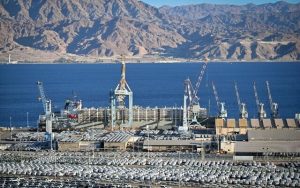
Wyoming Star: If you can single out the effect of the Houthi blockade, was it effective at all? Because when talking to a number of legal experts, they all point out an important requirement for the blockade to be legal—it has to be effective, so they are supposed to stop all the shipments to Israel. Houthis obviously cannot do that, because they are not the government, and they are not militarily strong enough. As far as I understand, this blockade is mostly affecting Egypt and a number of Mediterranean European states such as Greece, Italy, and Spain—anybody who has ports in the Mediterranean because of the Suez Canal.
Paul Rivlin: Well, Israel has ports on the Mediterranean—Haifa and Ashdod—that received goods. But they didn’t receive goods only through the Suez Canal, but of course if the Suez Canal is not operating, then that’s a problem. We have another port that avoids the Suez Canal—Eilat—in the south of Israel, on the Red Sea. It’s tucked between the Jordanian and the Egyptian borders, and it’s a port that is basically closed down because there were missile attacks. The shipping wasn’t coming through. All the Israeli shipping from the Far East. Japanese cars, Chinese goods, and raw materials from India all go right round Africa, as if there’s no Suez Canal, and that raises costs considerably. There is a point that should be made from all of this. This is not because of Hamas or Hezbollah, but behind them all is Iran. So that’s had an effect on costs, but it doesn’t mean that the goods don’t come. It just means it’s more expensive. Another country that has definitely taken more steps and more effective steps against Israel and maintains diplomatic relations with Israel and did a lot of trade with Israel is, of course, Turkey. And that’s important because some foreign companies manufacture there—Toyota—so we can’t get the cars from there manufactured by Japanese and others. But that has nothing to do with the Houthis. That has to do with Turkey and the conflict between Israel and Palestinians.
So the Houthis haven’t, as far as I can tell, had a major effect on the Israeli economy, except in this indirect way. But there’s another thing: they reinforce the feeling that Israel is under siege.
Now that siege has definitely eased tremendously with the overthrow of Assad and the change of the regime there and the practically wiping out of Hezbollah.
Wyoming Star: Most of their leaders have been reportedly killed.
Paul Rivlin: From what I read in the papers, they’ve still got some things there, but their ability to actually use them has declined enormously. So there isn’t the feeling that we’re under threat from everybody, and that helps investment. People who do assessments of investments, banking, loans, or whatever it is that makes it easier. Incidentally, the link between the economy and the situation—the improvement in the balance of payments, which goes back 20 years to 2003—means that the financial assessments of the Israeli economy, something that I’ve done, are stronger. People may say, “Well, this is very high risk,” but it’s a risk because of wars, not a risk because of its own structure. If, and that’s a big if, they can get away from this war situation, or ease it, or stop missile attacks, or whatever, then the underlying strength of the economy is there, and the country is not bankrupt. So, in other words, there’s room for improvement in the future on that side.
Wyoming Star: So they’re expecting a rebound of the Israeli economy? That’s why they keep investing.
Paul Rivlin: At a reduced level and waiting to see, but if you look at banking assessments, they definitely increased the risk factor, but they haven’t pushed it into the sky. The Houthis have not, therefore, had a great effect on Israel, but tackling them is expensive—flying F-15s and F-16s two and a half hours south with all the equipment we now use, refueling, intelligence aircraft—all this costs a huge amount of money.
Wyoming Star: Especially after the US pulled out after a bombing campaign.
Paul Rivlin: Well, they didn’t pull out. They’re still supporting us in terms of military aid and equipment, but who knows from day to day? We now see, for the first time, an Israeli naval attack on the Houthis. I have no idea what the significance of that is. You’ve got a target in the area for longer than an airplane dropping a bomb, so I don’t know why they do that. But I hope they know what they’re doing. We always used to say that they know what they’re doing because they’re so brilliant, and since October 7th, we’re less inclined to think they always get it right.
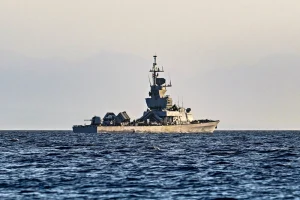
The country’s attitude on this is torn between the amazing acts in dealing with Hezbollah and the amazing failures of the whole system on October 7th.
And so we don’t know quite where we are on that.
Wyoming Star: I also wanted to talk to you about the potential improvement in relations between Israel and other Arab countries, especially now as President Trump tries to revitalize the Abraham Accords, his big political project in the Middle East. Do you see any potential in economic cooperation between Israel and countries like Saudi Arabia, Qatar, and the UAE, as all of them are affected by the Houthis as well because of the energy sector and oil shipments?
Paul Rivlin: There are a lot of questions hiding in your big question. The first is how independent are the Houthis? How much is it a matter of their own will? There are a lot of people, including experts here, who say, “Look, don’t think they’re just an offshoot of Iran.” They’re very tough. They’ve been fighting a war inside Yemen for a very long time. Huge numbers of people have been killed. And they’re a small group in Yemen. The others, who are more Sunni, control much bigger areas geographically. But they have not been able to deal with the Houthis successfully. Even though they had Saudi and UAE help, they still couldn’t do it. So I think for them the situation inside the country is a bit like Vietnam, where you just couldn’t win. And Israel one day will discover that ruling the West Bank and Gaza has been going on for a long time, but it’s not very sensible. So we have quite good relations with the UAE. We have relations with Bahrain, which was not so important in the long past. When Yitzhak Rabin was prime minister, there were relations with Oman, and I remember many Israelis, including students from my university, who would go on trips to Qatar. And Qatar is a particularly complicated place to understand what they want and what they’re doing. I think it’s everything. The big one is Saudi Arabia. Everybody is thinking of that.
My view, and you may find people say different things, is that the Saudis are not going to give Israel what it wants, which is recognition and trade and so on, at least until Israel recognizes the need for the Palestinian state.
Wyoming Star: So it’s an optics question, a political calculation.
Paul Rivlin: Definitely. The general view of the Middle East is that most countries are moving away from wars and conflict towards economics. They want to do business.
They all want to be like President Trump—just get on with business. And it’s not just him. There was an element of that all along the line, but Israel hasn’t moved in that direction really at all. It will move in that direction everything except the West Bank and Gaza under this government.

And I don’t know, if there’s a change of government in the next year or year and a half, how far another government, if there’s a different government afterwards, will be willing to go. And that is partly the outcome of what happened on October 7th.
Wyoming Star: From my understanding, the Golan is now out of the question as well because the Syrian government is weak.
Paul Rivlin: That would be extremely difficult to contemplate at the moment, because the instability built into the Syrian system may take years to sort out. So I don’t think Israel is willing to move back out of there because it really exposes the north of the country to a tremendous geographical advantage to the other side. And I haven’t heard from this leader in Syria that this is his main anxiety. He would like, I think, to reach some sort of informal or even formal agreements with Israel to just get that issue off his back. Because, like we said before, he wants to do business, and he wants to do business in order to survive.
Wyoming Star: And he doesn’t have the whole of Syria under his control, and his military forces are limited as well.
Paul Rivlin: Yeah, although there are potential populations there that would like to move in this direction. There are the Kurds, who are “yes-no” in Syria. There are also the Druze, who are definitely in Syria, and then there may be some amongst the Sunni population of Syria, which is the largest collection of people in the country, but it’s also broken down into subgroups, a desire not to be stuck in this Hezbollah-Shia-Iran perpetual conflict, which has been against them as well as against Israel. So I don’t see a big change versus Saudi Arabia, at least until the change of government here, because this one has put all its eggs into this basket of not trying to prevent that happening. So that’s an open question. The other open question is Iran and the nuclear agreement. The nuclear agreement may take a big threat off everybody’s worry chart, but then the question that Israel and the Arabs have to wonder about is, “Okay, in Tehran they said, ‘Okay, we’ve “given in” on the nuclear one, so how far do we go in the non-nuclear one?'” Which is the axis of resistance or whatever you want to call it. Which has largely been put out of action by Israel, by the United States, and by other allies who have attacked Iranian forces in Iraq and in Syria quite effectively. And then the collapse of Hezbollah, which was what they were putting a lot of money, resources, and people into. I mean a senior Iranian official was killed sitting next to the leader of Hezbollah underground. So the cost to them, they know, is very great, and nobody knows how they’re going to play it vis-à-vis the very bad internal situation. They may not want to get involved in that because it costs them so much that they would face instability at home. But on the other hand, they’re not the sort of people who want to admit defeat and not fight because that’s their raison d’être—their purpose. And so they can undermine things. But it depends on the situation amongst all the other countries. I think Israel has economic and political potential to a certain extent, but it depends on developments inside the country.
Wyoming Star: So again a political question arises: what will be the government’s position on the relations with the Arab countries—with Saudi Arabia and Iran specifically?
Paul Rivlin: I’m an economist. I’ve taught and worked with economists. It’s very frustrating to tell students that what really counts is not economics, and they look at the door, thinking, “Maybe we’ll go out now.” It’s politics. And I said, “I’m not here to teach politics. We’ll just have to stick to the economics,” but you can’t avoid it.
Wyoming Star: What are your thoughts on the Israel-US relations in terms of economics? I don’t think that the US is ready to decouple from Israel even with all this political questioning, ideas of sanctioning Israel, and stopping political support. There’s been a 17% tariff, but I don’t even know whether it has come into effect or not because of Trump’s changing rhetoric.
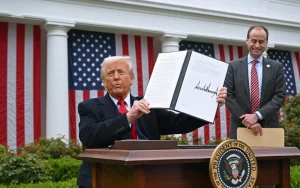
Paul Rivlin: It’s very difficult because I think both countries, particularly the bigger one, have governments that are very difficult to predict vis-à-vis everything—tariffs and so on.
But so far there was a possibility of some tariffs on Israeli goods. And I think they’ve been drawn down, and they may have effects on Israeli exports, and other things could put up the price of Israeli imports from the United States. But for consumers here, American goods are not that important.
And even if there are any steps like that, it wouldn’t necessarily make it problematic for large sections of the economy. Most of what we import for consumer purposes comes from the Far East or from Europe.
Wyoming Star: So it’s again the technological sector.
Paul Rivlin: And I’m not sure if it is or will be so exposed to the tariffs because, as they are learning in the White House, America needs the imports to make things. And even as we find in Israel when we look at the balance of payments, a lot of what is imported enables us to export. We don’t have all the materials. This is less true with high tech, but with anything manufactured, we don’t have coal, we don’t have oil, we have some gas, and we don’t have many other things. We don’t even have enough wheat growing here, so we import it, and it’s sensible. We’re exposed. It again depends on the politics. Now I don’t see the politics slipping into a reckless relationship.
But what has happened is, to a certain extent, American public opinion has moved against Israel, particularly amongst young people, even in the Jewish community—not by any means all, but I think there’s a growing, it’s not like the hatred of Israel that you get in certain places, but it’s weariness about what’s going on here. That what’s going on here is not the kind of thing that Americans would like.
But on the other hand, some of the things that are going on in America may make some people abroad wonder. The whole world is filled with this uncertainty. I think it becomes more complicated to manage this because in a country like the United States that is so open to the media and feeds on information from day to day on every platform—I mean, there are two platforms on my desk—there is the effect of public opinion on politics, and that has definitely moved not in Israel’s favor. And it’d be quite difficult to get it all back where it was. But in the midst of all this, we are still receiving American military equipment. We buy it, but we use American aid, obviously.
Wyoming Star: And I don’t think it will stop in the future, at least under this administration.
Paul Rivlin: I wouldn’t have thought so. What we’re told by Americans is “you never can tell.”
Wyoming Star: Well, especially now when the Trump-Musk relationship is dissolving in front of our eyes. It’s hard to predict anything with this administration. What will be your final predictions for the future of the Israeli economy? There are a lot of scenarios for how this conflict may end, but maybe give us the most optimistic one.

Paul Rivlin: There’s one thing that we haven’t discussed, which I feel is a real threat, and that is the role of religion. And I don’t mean Jews versus Muslims. The Arab population in Israel is mainly Muslim, but it is also partly Christian. They’re 20% of the population. The issue is within the majority of the Jewish population. Basically the state of Israel finances ultra-Orthodox people to get a bad education. Not all of them, but most of them go to religious seminaries and schools where they do not learn, and the government doesn’t oblige them to teach what I would call the basics—language, foreign language, science, mathematics, and the secular humanities—which I think we’re increasingly beginning to recognize as crucial in technological advance. I notice here that the technology companies are very interested in having English literature students. So with a lack of education, these men, and there are different programs for married and unmarried Orthodox men, are unable to compete in the job market and unable to provide for their families. Women there, on the other hand, are not limited in their education; however, they are forced into a more traditional lifestyle—having many kids, taking care of them, and, as they are often better educated, having to work on top of it all. A hard life. These families rely heavily on government subsidies. The other chunk of the population, the secular and modern Jews, modern Jews being people with education and faith, have problems with the Orthodox community. The subsidies come from their taxes; on top of that, Orthodox don’t serve in the military. There’s been a push to change that that caused demonstrations. If the problem becomes intolerable, all these educated people—doctors and programmers—may simply leave the country. We can already see record numbers of Jews leaving Israel for other places. And the US is one such place with all the economic ties we’ve talked about. That can do serious damage to the tech-reliant Israeli economy. And there’s a simple way to solve it: give the ultra-orthodox a good education. With that, they will be able to get better jobs, be less reliant on the subsidies, and be less supportive of the right-wing politicians that use these communities for a momentary gain of remaining in power. The attack on Israel on October 7, 2023, left many Israelis dead and wounded. The war since then brought many more to the Palestinians in Gaza. The war also severely damaged Israel’s international relations. On the positive side, the war has shown the resilience of the Israeli economy. There’s also been a surge in patriotism that can be seen in the number of reservists signing up. Other people could’ve left the country to evade the military; however, we’ve seen people returning from abroad to serve. There’s also been a surge in public initiative providing assistance to the army—such as feeding the troops during the first days when the military showed itself completely disorganized. So after almost two years, the county has not collapsed. But the future for Israel lies in high tech, be it the medical field, cybersecurity, or training new tech specialists. A number of Israeli universities have recently opened new tech centers. For the future of Israel, it’s important to solve the question of the Orthodox community, end the war, and elect a stable and forward-thinking government.
With the next Knesset election scheduled for October 2026, the right wing looks for ways to push the war further. They are still likely to lose; however, the opposition is now facing a number of issues. They need to come to some kind of clear, unified position. They need to decide what to do with Gaza. Doing anything regarding the West Bank can lead to splitting the country. They need to build a strong coalition. Their rule will be expectedly lackluster in the first years, but with good relations with the US, the UAE, and Qatar, as well as the Palestinians, they have a chance to make Israel prosper.
With input from Reuters, Arab Center Washington DC, the Jerusalem Post, and the Maritime Executive.

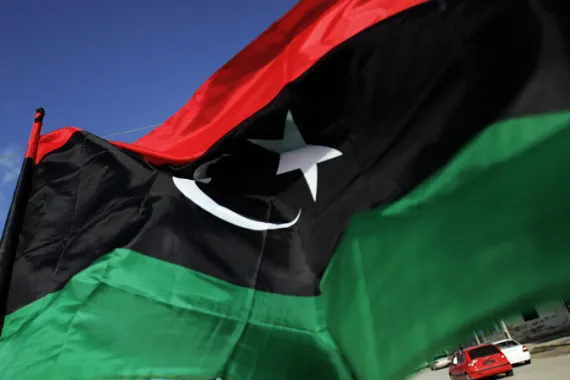


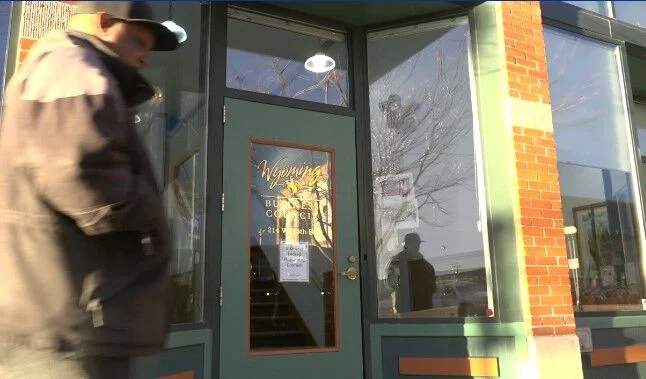




The latest news in your social feeds
Subscribe to our social media platforms to stay tuned